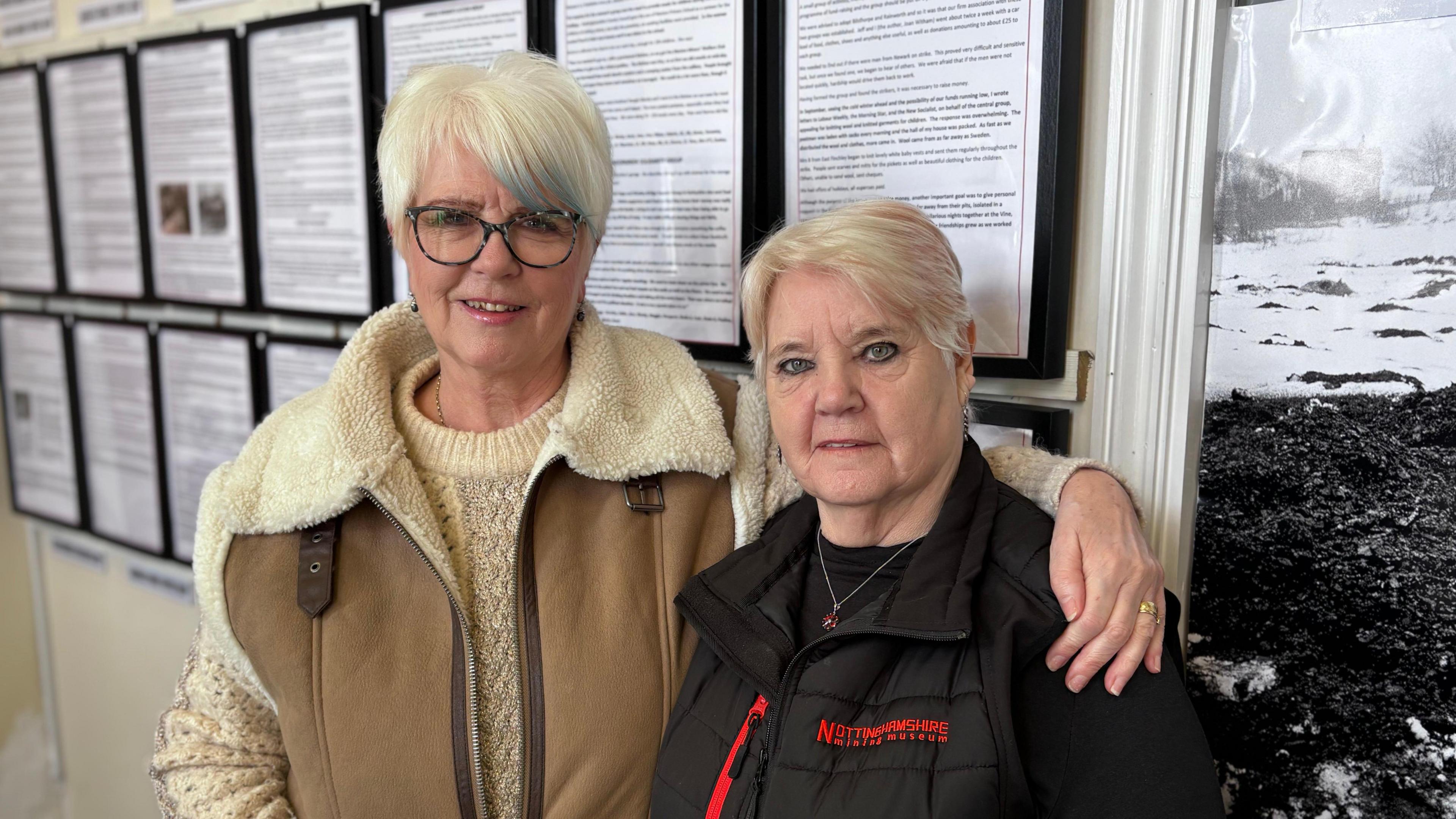The miners' strike seen through young women's eyes
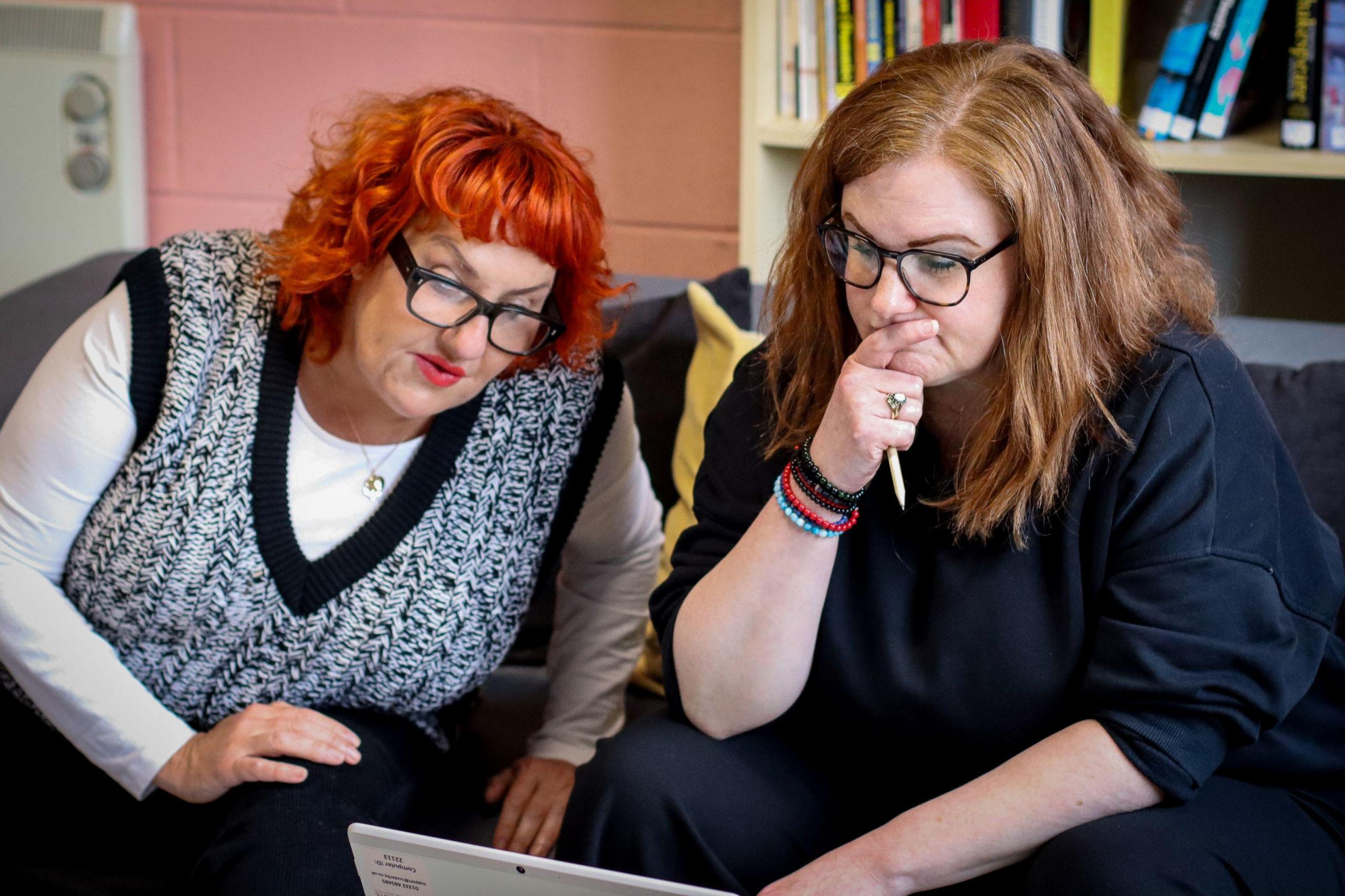
Dr Lisa McKenzie (left) wrote the play with Jayne Williams, who grew up in the same Nottinghamshire town and also experienced the miners' strike
- Published
In 1984, on the cusp of turning 16, Lisa McKenzie was excited to leave school and start her adult life working in a hosiery factory.
But something happened that would change the course of her life, and the lives of thousands of others.
"My dad refused to cross a picket line, and the day that he came home and said 'as long as there's a picket line I'm on strike', that was my 16th birthday," says Lisa.
Her dad was among the Nottinghamshire miners who took part in the miners' strike of 1984-1985.
"With the strike we always talk about that one year, but it affects you forever," says Lisa.
"What happened because of that strike has affected me my whole life but also everybody else in that community."
Now 57 and working as a university academic, Lisa has written a coming of age play inspired by her experiences.
It was co-written with Jayne Williams, whose dad was also one of the striking miners.
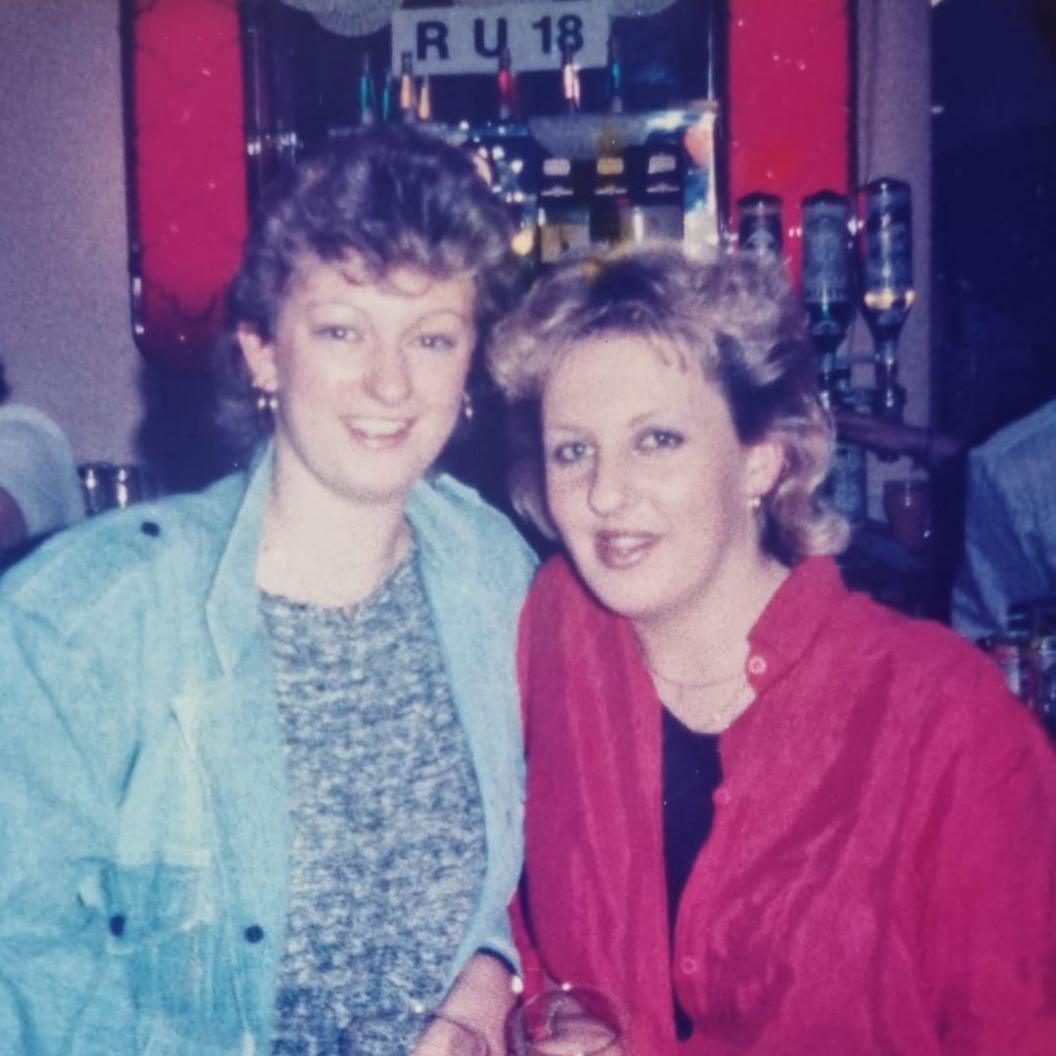
The main character in the play is based on Lisa (right), who was 16 when this photo was taken with her best friend Tracy in February 1985
Both women grew up in Sutton-in-Ashfield but they only started working together about two years ago, after Jayne saw Lisa at an event.
"I'd been speaking at a theatre event about a lack of working class people in the arts and culture industries," says Lisa.
"She approached me and said she'd already been interested in writing a play about the miners' strike, but not really about the miners' strike, more about women and children.
"Jayne said she had been just six when her dad was on strike, so her memories were very different to mine."
The result of the women coming together is Sixteen, which tells the story of the strike from the perspective of three teenage girls from the Carsic Estate where Lisa grew up.
The main character is based on Lisa herself, while the other two characters are based on several of her friends.
"It's based really on my own story because that's what happened to me," she says.
"It starts with the main character, Lisa's, birthday. She comes downstairs and there's men in the kitchen, and the men should have been at work."
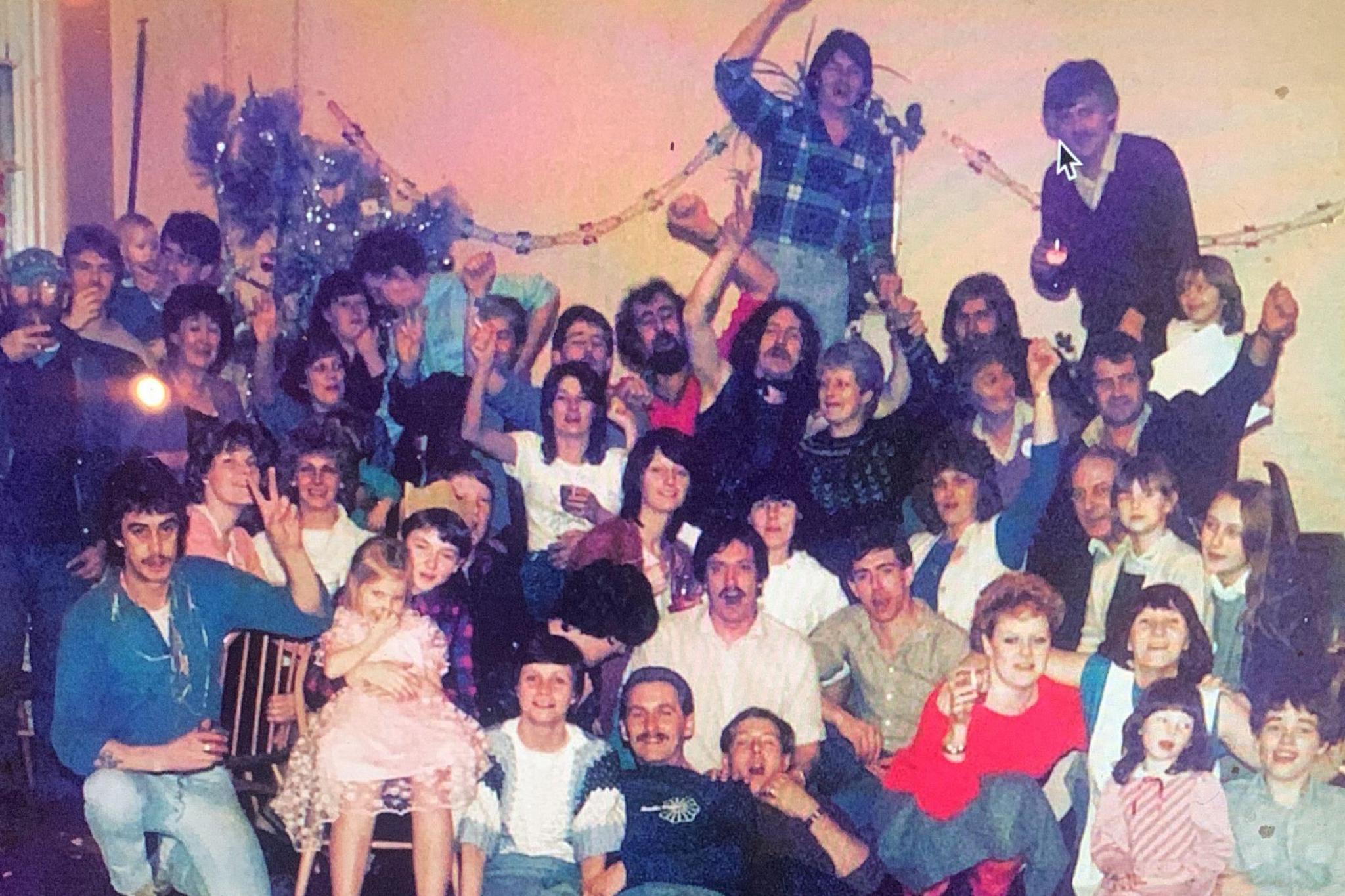
Both of the women's mums are in this photo of the strike centre in Sutton-in-Ashfield
Due to her age at the time, Jayne's memories of the strike are happier.
"Because I was six it was all an adventure for me and my brother," she says.
"We went on coaches and strike marches everywhere. People would put you on their shoulders and walk with you. There was this big community.
"So it's been really interesting collaborating with Lisa on this and understanding the politics of it a bit clearer."
Lisa and Jayne realised they must have been in the same room many times when they were younger.
Lisa's mum started Ashfield Women Against Pit Closures, Lisa helped run it, and Jayne's mum was a member of the group.
Lisa even found Jayne's name on a list of children's names she had written back in 1984, amid the financial hardship for the striking miners' families.
"We made sure that all the kids got a Christmas present from Santa, so we wrote the names down of all the kids and what they wanted," explains Lisa.
"When I saw that list that I'd written, it was in my handwriting, there were babies on it.
"It was sad. For the people who'd got babies it must have been very, very frightening for them."
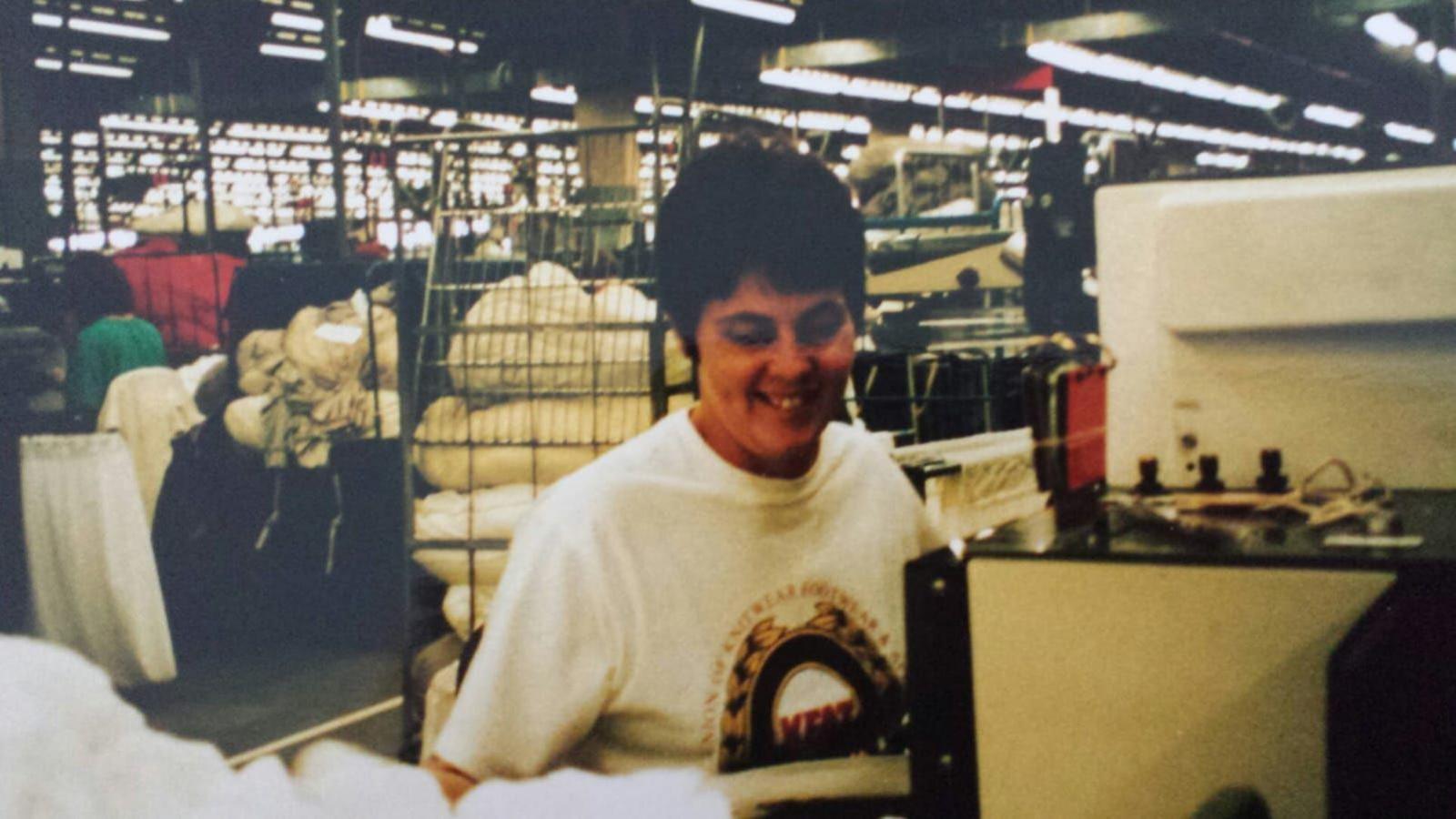
Lisa and her mum (pictured) worked at the Pretty Polly hosiery factory in Sutton-in-Ashfield before it closed
After a year of hardship, the strike ended following a narrow vote and miners returned to work in March 1985.
"We lost the miners' strike, and the consequences of that loss and the consequences of the politics ever since have meant that those communities have been devastated, absolutely devastated," says Lisa.
The pit closures which prompted the strike continued over the next decade, and factories like the one Lisa worked in also closed, as manufacturing moved abroad.
"When we think about deindustrialisation we always think about men, but women were also deindustrialised, because women were working in the factories," she says.
"The factories and the pits weren't great jobs but they were solid and stable, and they did offer a decent working class wage.
"The inequalities I experienced as a child is now four-fold on working class kids in those communities today."
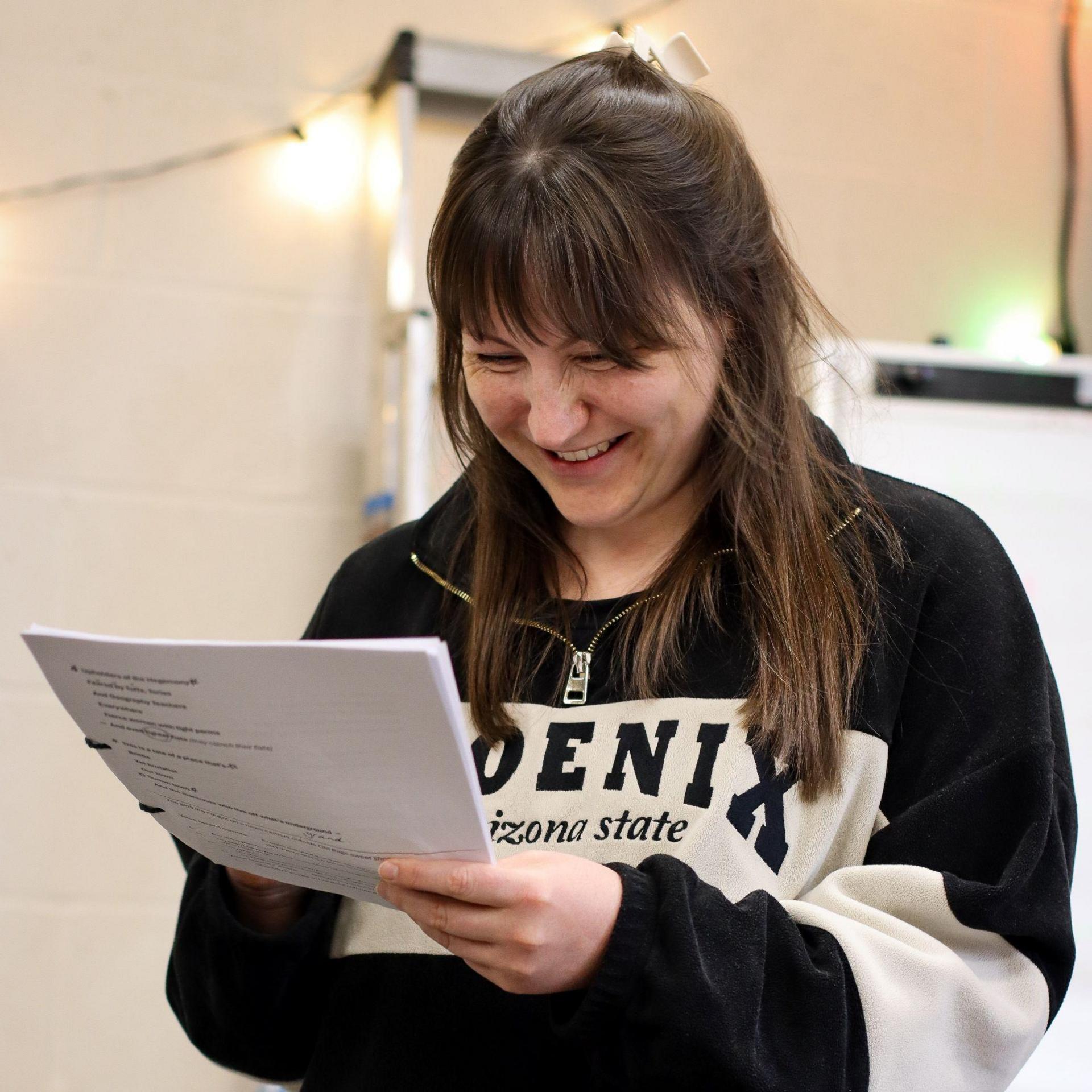
Abigail Pidgeon plays Lisa, the character based on 16-year-old Lisa McKenzie
Lisa left Sutton-in-Ashfield at the age of 19, while Jayne left when she was 17.
Jayne credits her career to her early experiences during the strike.
"You learn about dramatic tension because you see it on the faces of the adults every day, and you see literal dramatics happening with police against striking miners in front of your face," she says.
"The strike was really where I learnt about community and creativity, and I really do credit that with the job that I do in theatre because I can't do anything else apart from tell stories, or support other people to tell their stories."
Meanwhile, Lisa decided to do an access course, then a degree, after her mum died in a car accident in 1999.
"The only other people like me at the University of Nottingham was the cleaners and those that worked in the canteen," she says.
She went on to do a masters degree, then a PhD, then wrote a book called Getting By about the St Ann's estate in Nottingham, which she'd moved to after leaving Sutton-in-Ashfield.
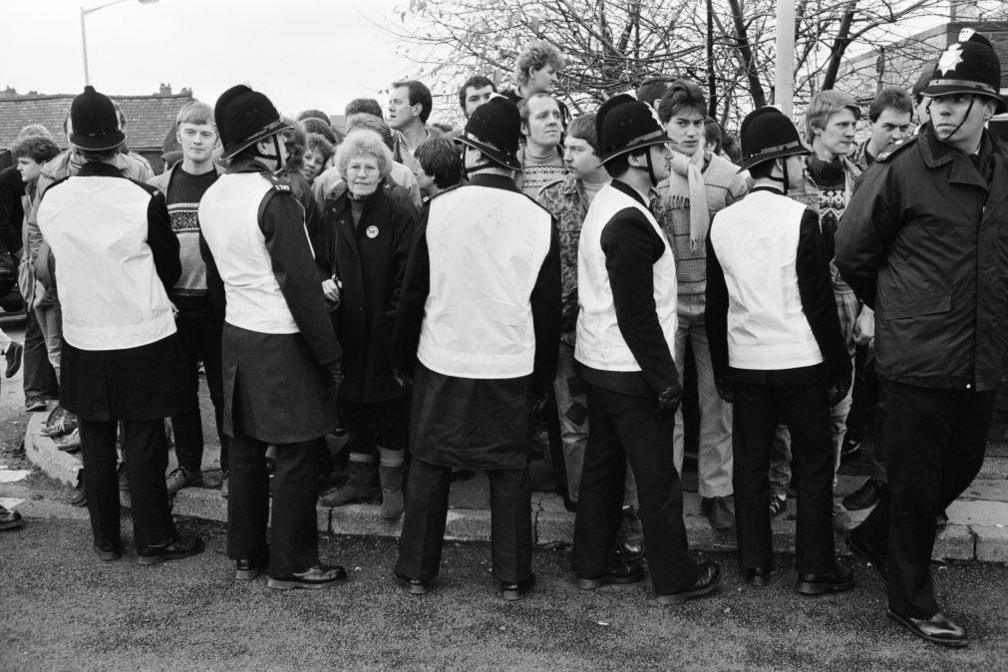
Jayne said stories about the miners' strike are not usually told by women
Both women hope that people who come to see the play will share their own stories and experiences, and they're taking part in a question and answer session after the show.
"We want to hear other people's stories because these stories have been told but they've often not been told by us," says Jayne, "and they've often not been told by women, and definitely not by girls."
Sixteen will be performed at various venues across Nottinghamshire, external from 9-13 September.
Get in touch
Tell us which stories we should cover in Nottingham
Follow BBC Nottingham on Facebook, external, on X, external, or on Instagram, external. Send your story ideas to eastmidsnews@bbc.co.uk, external or via WhatsApp, external on 0808 100 2210.
Related topics
- Published2 March 2024
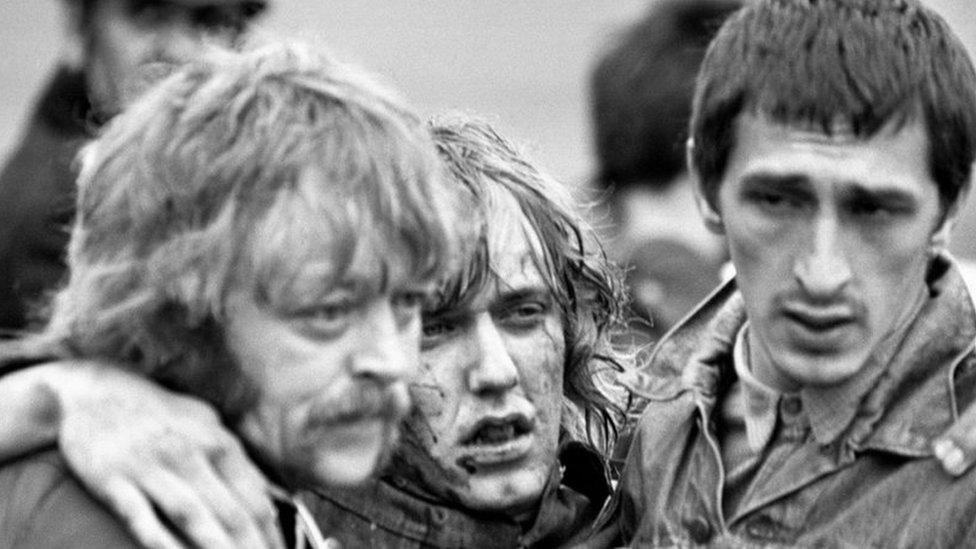
- Published3 March
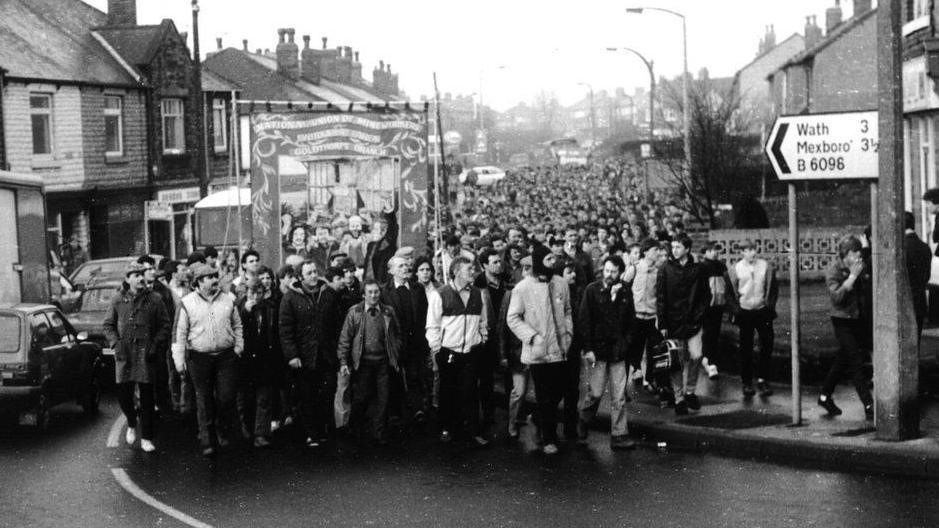
- Published25 March
